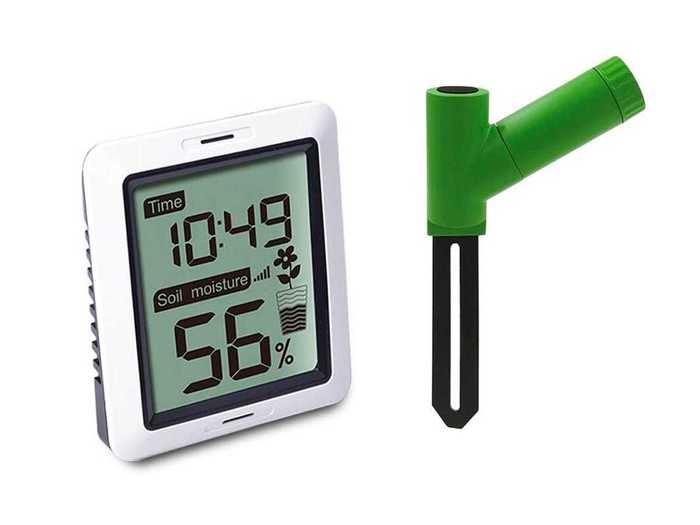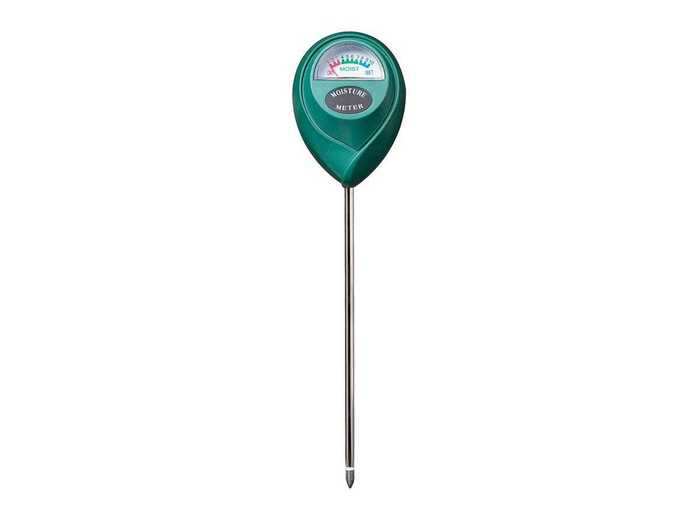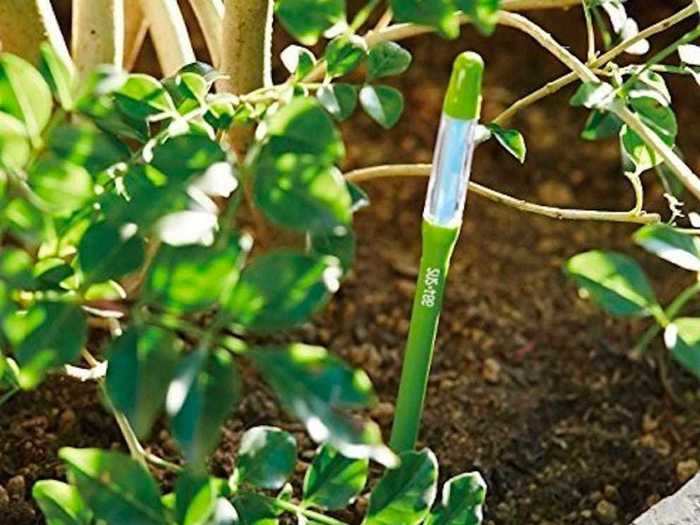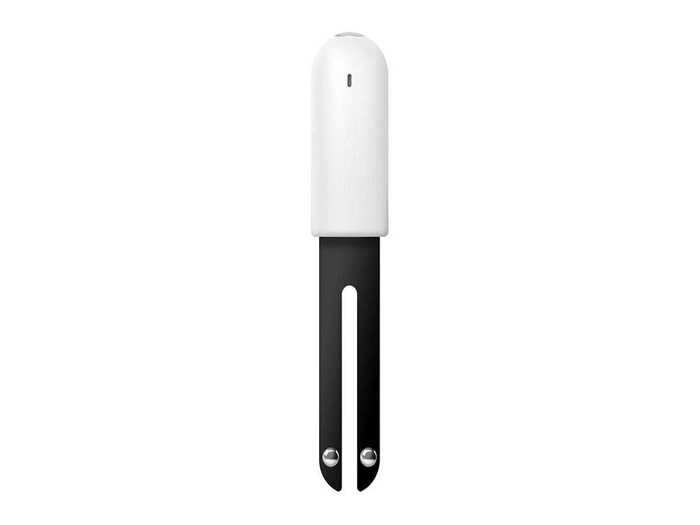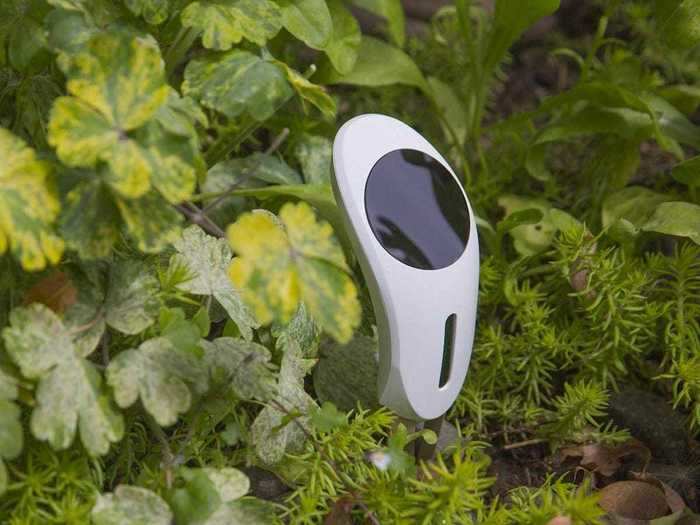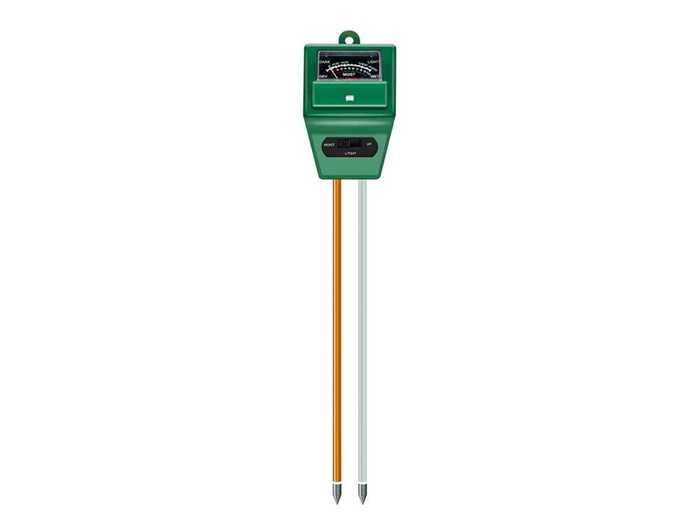- A soil meter is most useful for checking the moisture level of your soil.
- Our top pick is the ECOWITT Soil Moisture Meter because of its affordable price and simple design.
- We also detail soil meters for gardeners on a budget, smart options that connect to apps, and more.
A soil meter is a little gadget that usually has one or two probes. A very basic soil meter reads only soil moisture levels. Some meters can also provide information about soil pH. While these readings are usually not very accurate, an extremely high or low reading lets you know that something is up with your soil's health. Devices are also sometimes equipped with light meters. Taking sunlight exposure readings in different parts of your garden or home can help you determine if a spot is a fit for a particular plant.
Smart soil meters take it one step further and can provide you with actionable insights about plant and soil health. A good soil meter should be accurate and easy to use. We picked a few options to suit different green-thumbed needs, including budget devices, smart sensors, and more.
Here are the best soil meters
The best overall
All you need to power the sensor and display is two AA batteries.
Amazon
The
ECOWITT Soil Moisture Tester delivers rapid readings and works in both indoor and outdoor settings.
What we like: Waterproof, easy-to-read LCD display, cute flower pot icon
The weather-resistant sensor on this soil meter takes accurate moisture readings in about 72 seconds and displays them on a convenient LCD display. Soil moisture level is depicted in two formats: numerically and visually, with a clever flower pot icon. The display receives information wirelessly, as long as the sensor is within 300 feet. You can also calibrate the unit to accommodate different soil types and ambient humidity levels. At 2.3 inches tall (5.3 inches from bottom to tip) when stuck in the soil, the sensor won't stick out like a sore thumb.
The best on a budget
The single probe meter delivers instant moisture readings.
Amazon
The
XLUX Soil Moisture Meter is a simple, no-frills moisture meter at an attractive price.
What we like: Analog display is clear and easy to read, good value
Sometimes the topsoil appears wet, but deeper down plant roots may be struggling to access water. Use this soil moisture meter to check whether your garden needs watering. The sensor has a basic single probe design and a color-coded dial display. It works without batteries, so you never have to worry about it shutting off while you're out digging in the dirt and its affordable price tag makes it a great choice for gardeners on a budget. Some adjusting may be necessary to ensure the probe is at the correct depth to detect moisture.
The best simple moisture meter
The aquameters, engineered in collaboration with the Tokyo University of Agriculture, don't require any batteries.
Amazon
This simple set of
IPPINKA Aquameters helps forgetful gardeners know when to water thanks to color-changing sensors.
What we like: Ultra-simple design, easy-to-read indicator
Pop these little sticks at the base of your houseplants to know when plants are thirsty. The sensors have indicators that turn blue when the soil is wet and white when the soil is dry. Root rot is a common cause of death for houseplants and these mini sensors are excellent for gardeners who frequently overwater and kill their plants. The set of four sensors lasts about six to nine months; each stick features a replaceable core.
The award-winning moisture meters are ideal for houseplants and can measure moisture levels in various types of soil. They're also available in small, medium, and large sizes to accommodate different sized pots.
The best smart sensor
The sensor connects via Bluetooth.
Amazon
With the help of the iOS or Android app, the
Northfifteen Plant Monitor tracks multiple metrics, including temperature.
What we like: Ability to view plant fertility over time
This smart soil meter is best for gardeners looking for more than just the basics. The Northfifteen monitor has several sensors that track soil moisture, light exposure, temperature, and nutrient needs. It's ideal for keeping tabs on that tricky-to-care-for houseplant that never seems to be thriving. In the app, charts allow you to view your plant's progress over time. You can also use the app to monitor light levels as they change throughout the day and find the best spot for sun-loving houseplants. It's important to note that you need to be within range to grab readings from the sensor; you can't view real-time changes remotely.
The best for outdoors
The sensor has a weather-resistant design.
Amazon
The durable
Netro Whisperer is tough enough for outdoor use and reads for moisture levels, ambient temperature, and sunlight exposure.
What we like: Durable, capable of creating a customized watering schedule
The curved design of this solar-powered sensor allows it to capture maximum sunlight throughout the day. It detects soil moisture levels, ambient temperature, and sunlight exposure, all key for ensuring proper plant growth. The wireless sensor is Wi-Fi-enabled (2.4GhZ), so you can access data stored in the iOS or Android app anywhere you go. It has a weather-resistant design, so you can leave it in the garden 24/7.
This soil meter is also compatible with intelligent watering systems like the Netro Sprite. Once it manages to grab a few readings and analyze weather patterns, the app delivers a recommended watering schedule. The app also sends plant care notifications and reminders to perform important gardening tasks.
The best dual-probe meter
The trio of sensors measure light, pH, and moisture levels.
Amazon
With its multiple sensors, the
Sonkir Soil Meter provides a snapshot of soil and light conditions.
What we like: Convenient, takes quick soil and light readings
Three sensors are better than one. You likely won't use the pH probe as often as the light and moisture sensors, but it's convenient to have the option at your fingertips. The small soil meter has two probes — to read moisture and pH levels — and a sensor at the top to measure light intensity. The display doesn't provide ultra-accurate readings, but it's enough to give you a ballpark measurement that you can work with. The sensor doesn't require batteries and it's lightweight enough to travel with, making it ideal for use in community garden plots. The probe is also quite long at 7.9 inches, allowing users to take deeper readings than other meters.

